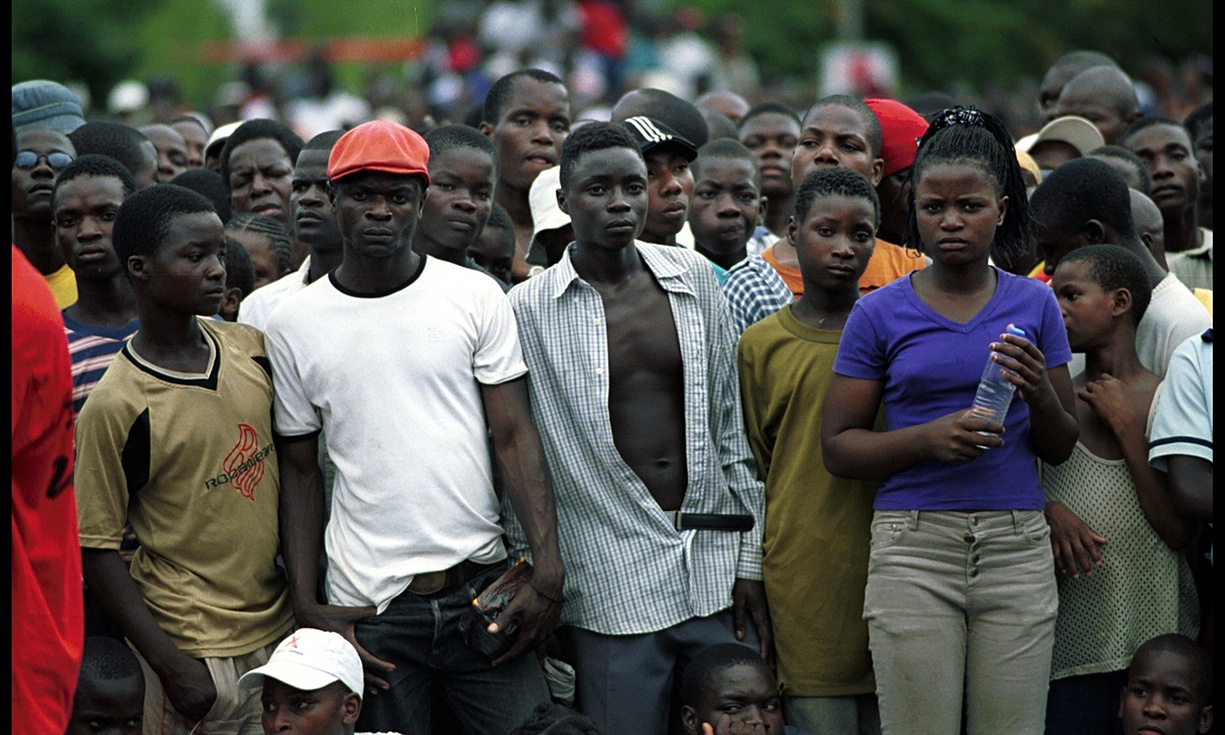The latest annual report by the Mo Ibrahim Foundation on the performance of African governments notes an overall improvement of health while education is in decline.
Governance in African nations is improving at a slow pace. This is one of the key findings of the 2018 Ibrahim Index of African Governance, released on Monday by the Mo Ibrahim Foundation in London. However, economic growth over the last decade has failed to translate into substantial progress and education is on a decline, the index says.
"Now is the time for Afro-realism: for sound policies based on honest data, aimed at delivering results", said Mo Ibrahim, a Sudanese-born British entrepreneur and philanthropist, in a message on his foundation's Facebook site.
Health – a positive story
The Ibrahim Index of African Governance (IIAG) is a tool that measures and monitors governance performance in 54 African countries on an annual basis. The framework comprises four categories: Safety and Rule of Law, Participation and Human Rights, Sustainable Economic Opportunity and Human Development.
The foundation defines governance as the provision of the political, social and economic public goods and services that every citizen has the right to expect from their state.
"Negative stories usually stand out more in such reports. But there are definitely some positive results," said Yannick Vuylsteke, Head of Research at the foundation in an interview with DW. "We have seen very positive growth in infrastructure and also gender on the continent is really going from strength to strength. The most positive story is health. This is what's driving progress in overall governance in many countries."
According to Vuylsteke, over 90 percent of African citizens live in countries where health has improved over the last 10 years. The child mortality rate has gone down and the provision of anti-retroviral drug treatment up in every single country, he said.
On the negative side, the report highlights the stagnation in terms of economic opportunities for citizens. "There are some striking results, if we compare these to the level of GDP growth that the continent has seen. That seems to have failed to translate into governments providing economic sustainable opportunities for its citizens on average."
Ivory Coast scores
The report shows that several countries are doing quite well. Ivory Coast is the best example: It is the only country on the index that shows improvement in all 14 sub-categories. Vuylsteke believes the reason for this is a very balanced approach: "In Ivory Coast, the rule of law, transparency and accountability show the strongest relationship with government scores. Data suggests these are key pillars of governance performance," he said.
Despite this success story, African governance remains only on a moderate upwards trajectory. Progress is led by a handful of countries, while in many others momentum continues to falter. The reasons for this differ. Tunisia, for example, has failed to keep up the momentum in Participation and Human Rights, whilst Ethiopia's sharp declines in SustainableEconomic Opportunity are the main driving factor of the country's recent downturn in Overall Governance, the report says.
Meanwhile, 18 countries - one in three on the continent – display a worse governance score in 2017 than ten years ago. Even if some of these countries have begun to turn things around, the majority (12) have so far failed to do so. Some of these (such as Democratic Republic of Congo, Equatorial Guinea and Libya) are among the 10 lowest scoring countries in terms of overall governance in 2017.
Education decline is a concern
Looking at the ranking of individual countries, Mauritius leads with the highest score and Somalia comes in last, even though Mauritius registered a small decline over the past decade and Somalia improved its scores. According to Vuylsteke, the Ibrahim index is an objective exercise and does not reflect whether a country has come out of a conflict or has a large or small economiy. "Somalia shows a positive result in terms of trend and is improving continously. However, there is still a long way to go," the researcher added.
In a continent that is struggling to improve social society, the Ibrahim report shows that human rights have improved, but the space for members of civil society to express themselves is shrinking. Freedom of association needs to increase, said Vuylsteke and the growing youth population needs to have their voices heard.
The huge population growth – Africa's population has increased by 26 percent over the last decade and 60 percent of the 1.25 billion people were under the age of 25 last year – is outstripping the progress made in education. "The enrolment levels have increased, but the drivers of progress are whether the quality of education is satisfactory and whether education is meeting the need of the economy," the head of research said. "It is a concerning trend, considering the very large increase of youth population that is expected to happen over the next few years." – dw.com




